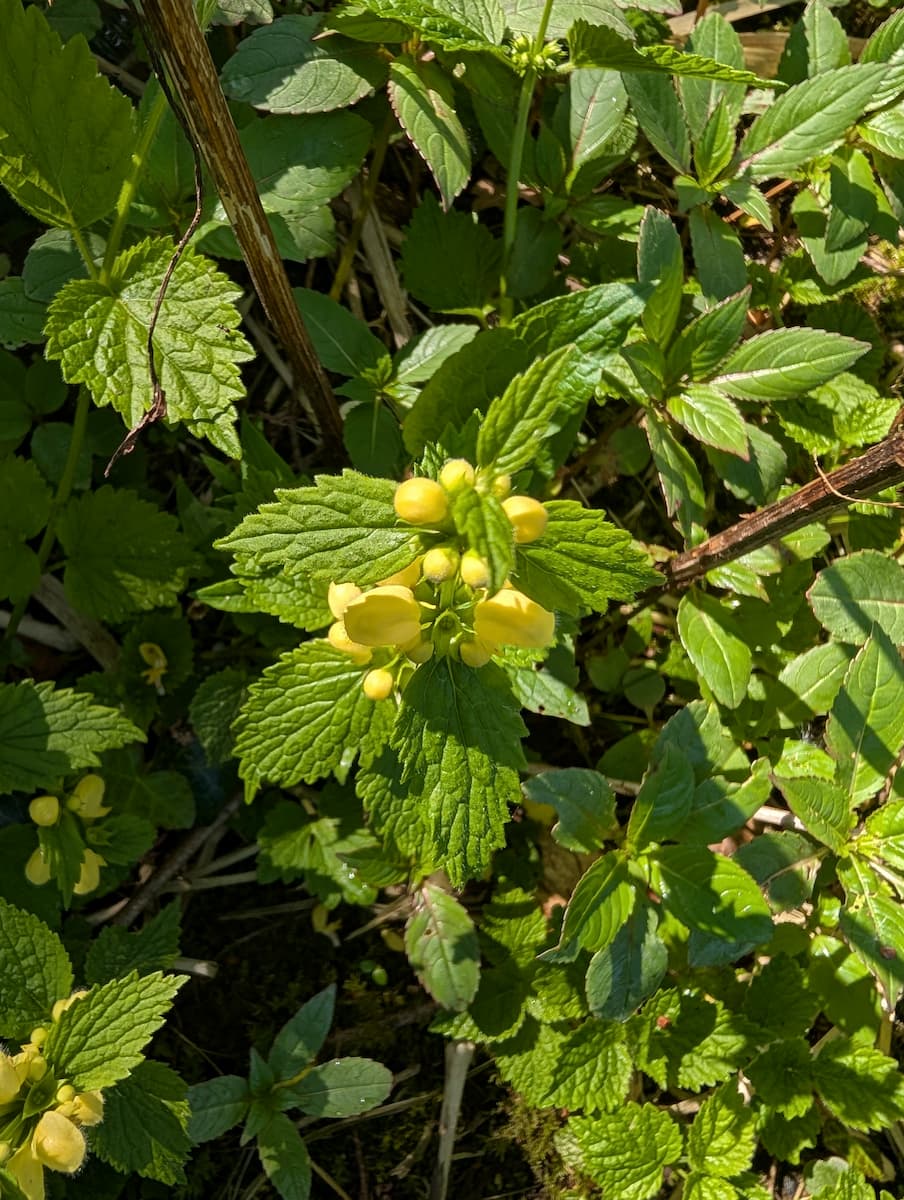Welcome back to our series on plant identification! In this blog post, we delve into the native variety of Yellow Archangel (Lamium galeobdolon) as it blooms in May in the United Kingdom. Join us as we explore the beautiful flowering examples of this native plant in situ and learn how to distinguish it from its variegated counterpart.
Key Points Covered
Flowering Season
Discover the native Yellow Archangel in full bloom during May, showcasing its vibrant yellow flowers. This is the perfect time to observe and identify this plant in its natural habitat.
In Situ Examples
See real-life examples of the plant in its natural habitat, helping you identify it easily in the field. Our video provides a close-up look at the plant’s distinctive features, making identification a breeze.
Comparison with Variegated Variety
Learn the key differences between the native Yellow Archangel and the variegated variety, ensuring accurate identification. While both varieties share similar characteristics, the variegated variety has distinct white markings on its leaves, which can help you tell them apart.
Reference Images
At the end of the video, we provide still images for quick reference, making it easier for you to spot this plant in your own garden or local green spaces. These images highlight the key features of the native Yellow Archangel, aiding in accurate identification.
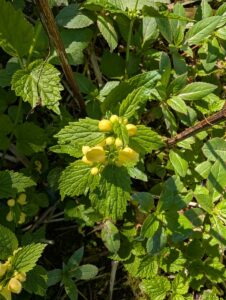
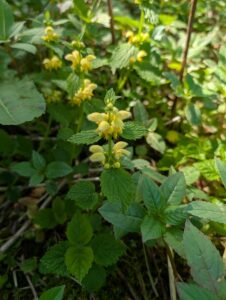
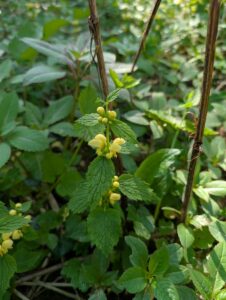
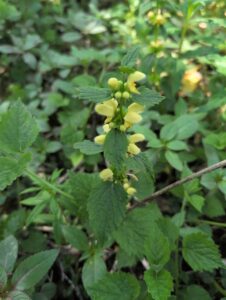
Why Identify Native Yellow Archangel?
Biodiversity
Understanding and identifying native plants is crucial for preserving biodiversity and supporting local ecosystems. Native Yellow Archangel plays a vital role in the UK’s natural landscape, providing habitat and food for various wildlife species.
Garden Interest
Native Yellow Archangel adds a touch of beauty to your garden with its vibrant flowers and lush foliage. It is a low-maintenance plant that thrives in shaded areas, making it an excellent choice for gardeners looking to add a splash of color to their outdoor spaces.
Educational Value
Enhance your knowledge of native flora and their importance in the UK’s natural landscape. By learning to identify native plants like Yellow Archangel, you can contribute to the conservation of local ecosystems and promote biodiversity.
Variegated Yellow Archangel: Identification and Management
Variegated Yellow Archangel (Lamium galeobdolon ‘Variegatum’) is an evergreen perennial that can be identified year-round due to its distinctive variegated leaves and yellow flowers. Unlike the native variety, which is deciduous, the variegated variety retains its leaves throughout the year, making it easier to spot even in winter. This plant can be distinguished from similar-looking plants, such as nettles, by its soft, non-stinging leaves. Variegated Yellow Archangel reproduces by stolons, similar to strawberries, allowing it to spread quickly and thrive in shaded, moist areas. It can quickly dominate the understory of woodlands, making it important to monitor and control its spread.
Native versus Invasive
While Yellow Archangel (Lamium galeobdolon) is native to the UK, the variegated variety is listed on Part 2, Schedule 9 of the Wildlife and Countryside Act, classifying it as an invasive species. It is not illegal to have Variegated Yellow Archangel on your property, but allowing it to spread into the wild is prohibited. Responsible management, including regular monitoring and control measures such as manual removal or herbicide application, is essential to prevent its spread and avoid legal issues. Understanding the differences between the native and variegated varieties is crucial for preserving biodiversity and supporting local ecosystems.
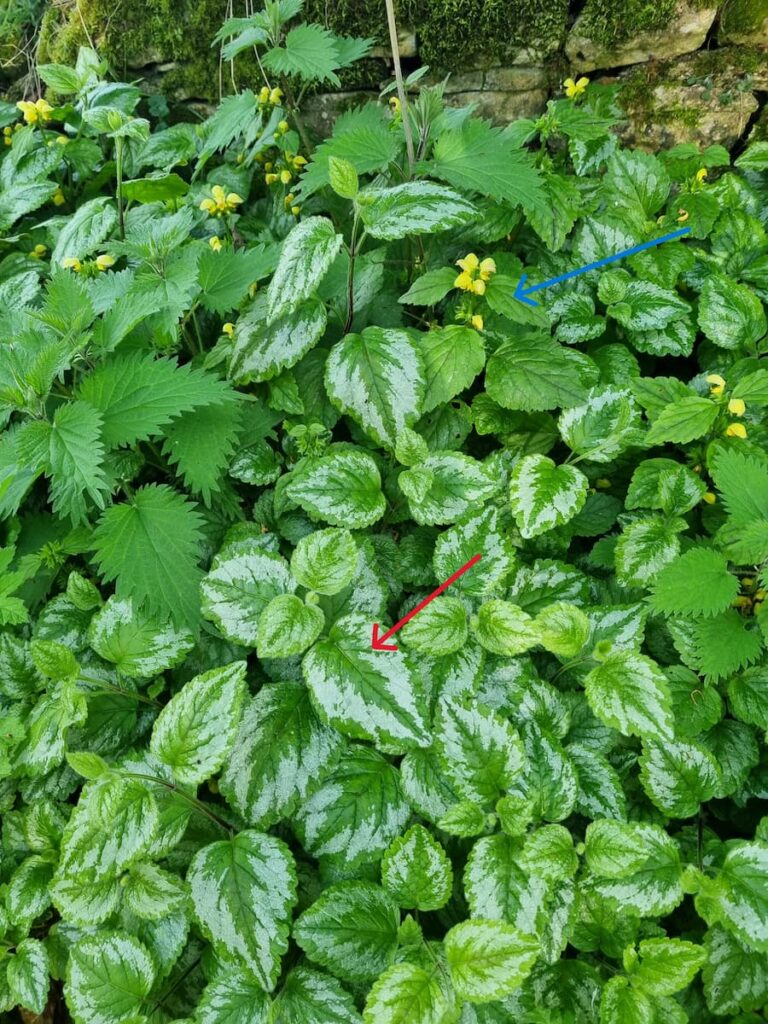
Conclusion
We hope this blog post has provided you with valuable insights into the identification of native Yellow Archangel. Like and share this video to help others learn about Native Yellow Archangel. There are lots more informative videos on our Youtube Channel
Thank you for watching, and happy plant identifying!
Stay tuned for more videos in our series on plant identification, where we will continue to explore the fascinating world of native and invasive plants in the UK.
The Postcode Areas We Serve
Gloucester and Swindon
Birmingham and the Midlands
Bristol and the South West
Cardiff and South Wales
